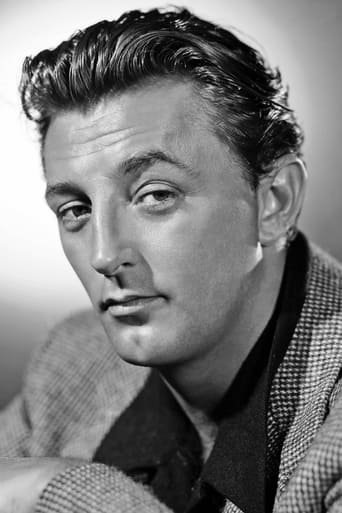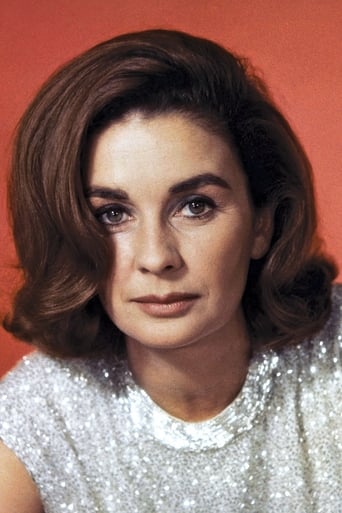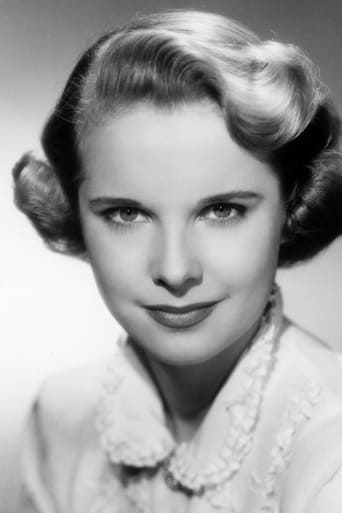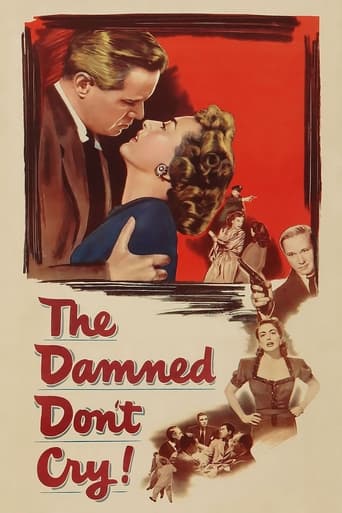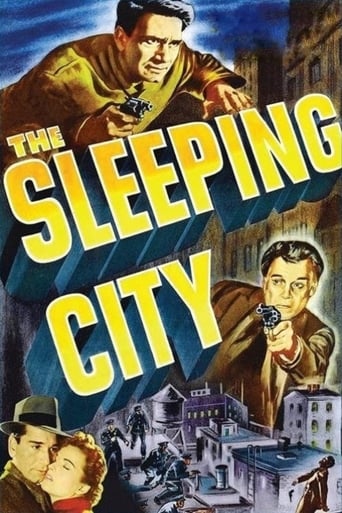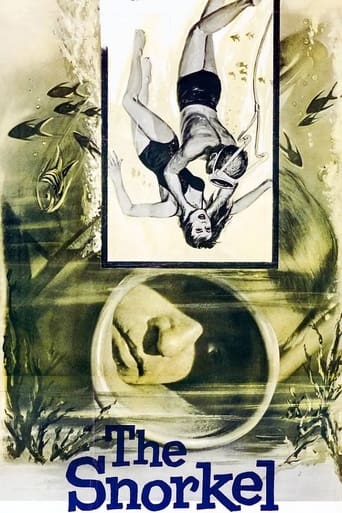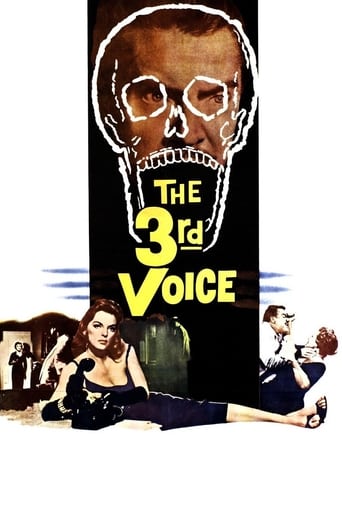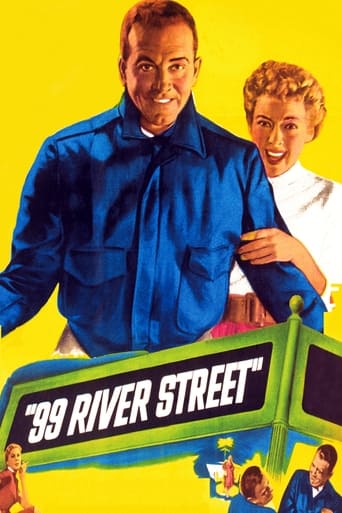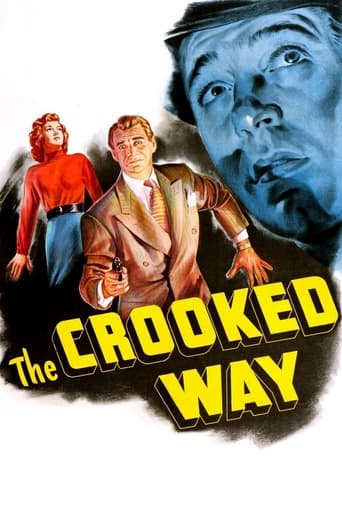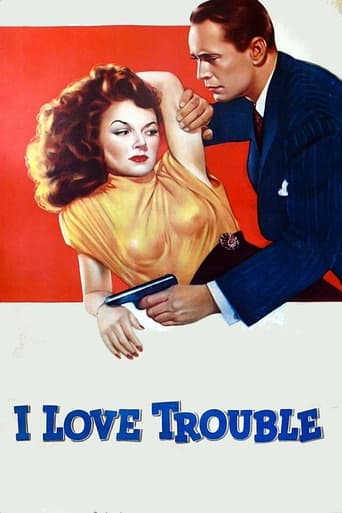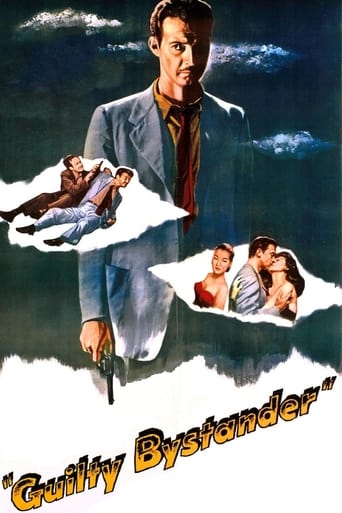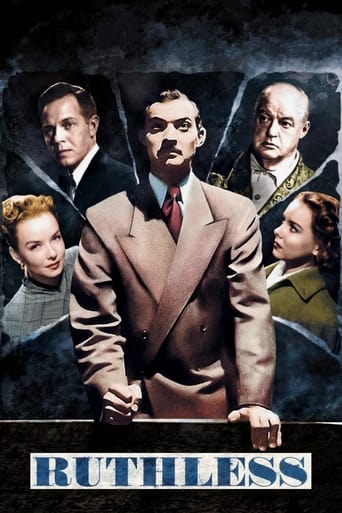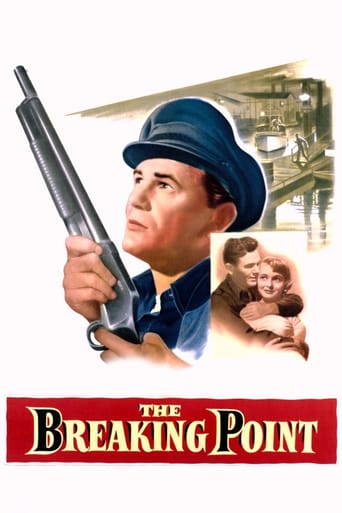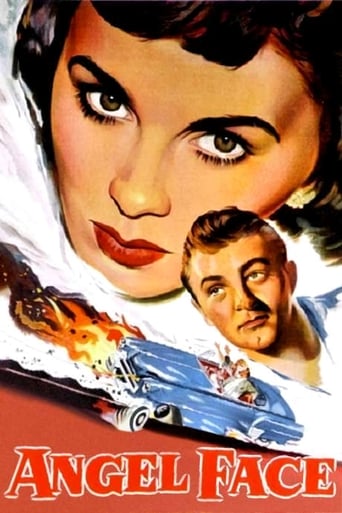
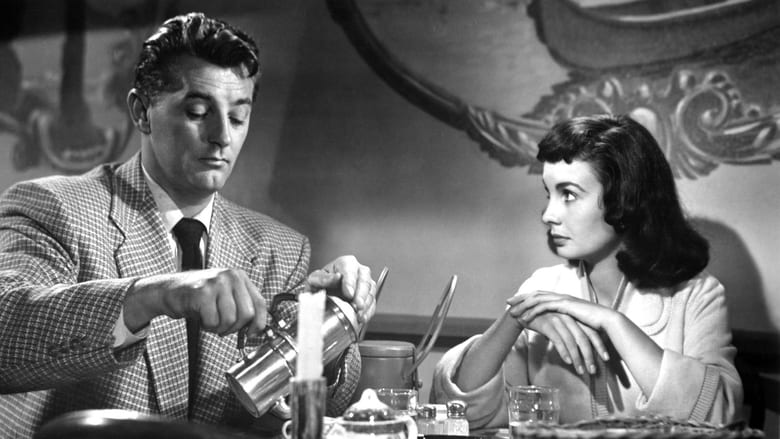
Angel Face (1953)
An ambulance driver gets involved with a rich girl that might have a darker side.
Watch Trailer
Cast


Similar titles
Reviews
Thanks for the memories!
Such a frustrating disappointment
This movie tries so hard to be funny, yet it falls flat every time. Just another example of recycled ideas repackaged with women in an attempt to appeal to a certain audience.
An old-fashioned movie made with new-fashioned finesse.
After watching this I wasn't sure it was a film noir after all, so I looked up the term and found that there is no consensus on what a film noir is. Does it refer to pessimistic mood, or camera style, or details of plot, or smoking tobacco all the time (this is a point in Ebert's don't-miss Guide to Film Noir)? This film has pessimistic mood, and an all-night diner, and Robert Mitchum, so okay, but it has no gangsters or low-lifes, is largely set in a nice house, and really is the drama of the unfortunate Tremayne family into which an innocent bystander stumbles. Everyone involved went through the war and maybe this is a record of national PTSD somehow.Once upon a time a successful novelist, Charles Tremayne, lived in London with his beloved wife and loving daughter Diane. Then a Nazi bomb killed the wife and emotionally shattered the husband, who hasn't written a word since. He has moved to Beverly Hills and has married a rich woman who apparently does her best to love him and Diane. But Diane spurns her as an intruder and blames her for the loss of the man her father once was. She plays moody tunes on the piano and plots her stepmother Catherine's death. She's not a sociopath, or a schemer motivated by greed or lust. She seems to be a ruthless twenty-one-year-old, emotionally still nine years old, intent on living with Daddy and having everything right again.Enter Frank Jessup, who was himself "shot out of a tank", and now works an ambulance driver. He is sane, perceptive, and competent, but seems to be drifting through life; he has a girlfriend, Mary, but hasn't committed himself to her; he dreams of setting himself up as a mechanic for sports cars but hasn't made a serious move in that direction, seven years after the end of the war. Now Diane makes a play for him and pries him away from the woman who would really have been much better for him. What is her motive? It isn't lust. It seems to be partly desire for a .. playmate? Accomplice? Frank gets pried away without much resistance, but not because he has a wild passion for Diane. It's more that he's just pliable. When a pretty woman kisses him and offers more kisses, the inner will to induce him to break it off because he really intends to be elsewhere never manifests itself. Diane gets Frank hired as her family's chauffeur, offering to have her stepmother set him up with a garage. But then she tries to convince Frank that Catherine has double-crossed him. This is supposed to make Frank hate Catherine, but it doesn't work. He is not a dope, either, and has caught on to Diane's intentions, and tries to talk her down from it. This doesn't work. Neither does her plan, though, on several levels.After some very effective moments, the film (in my opinion) bogs down when Diane's high-paid lawyer comes up with the stunt of having Frank and Diane get married and portraying them to the jury as innocent young lovers. Maybe it's just that I can't for a second imagine a juror being impressed by this. On the other hand the trial sequence is not full of clichés. In the aftermath, the mood of despair sets in. Frank tries to get back with Mary, who acts like a normal person instead of a movie character: she doesn't hate him, but she's moved on. Diane's last hope is that Frank will somehow be the new man in her life. He's smart enough not to go along with that. But he's still too willing to take innocent suggestions even from someone he knows he ought not to take them from. That turns out to be his tragic flaw: that when a pretty woman offers him a lift, as it were, his first and last impulse is to go along.So this is not really a "typical film noir" if you think that means that the characters are all unchecked fountains of vice and melodrama. Nearly all of the characters in the film are laid-back and normal people doing their jobs, as it were. The detective and the D.A. are not crooked; the sharp lawyer is doing his job as he sees it; Mary and Frank and Charles and Catherine are all decent people. (I rather reject the idea that Frank is "amoral" in this film, although he should be more decisive.) Even Diane strikes me as being somewhat pitiable; she is definitely capable of remorse, doesn't want Frank blamed for her actions, and is not a "femme fatale" except in the literal sense, you know. Thinking about this, it might make the film's outlook particularly pessimistic: most people are pretty normal, but somehow it all works out badly anyway. Anyway, I think the relative absence of melodramatic tropes is refreshing.
I must dissent a bit here. While I don't think this is a bad film, to me there's just something not quite right about it.First off, about the cast. Robert Mitchum is very good here as the target of Jean Simmons' affections. Although, maybe this is what is bothering me. In the role, Mitchum's character is a pretty street-smart guy. Would he really fall for Simmons' scheming? Somehow I don't think so.Jean Simmons is interesting here. She's nuts, obsessing about killing her stepmother, but doesn't overplay the part...as is often done in this type of plot. In fact, it takes you awhile to see where she is going.The parents get a bum steer here in terms of the story. Despite being the target of Jean Simmon's hate, the mother (Diane Tremayne) gets little screen time. Likewise, the venerable Herbert Marshall (as father) gets little screen time, and has one good scene (coincidentally, I watched Marshall's appearance on "What's My Line?" after viewing this film (he appeared in 1954, and in one of his answers he alluded to having reached that point in life where he had become a character actor, rather than the star).Leon Ames, pretty much always a character actor, continues as that here as the defense attorney, although he is outdone by Jim Backus playing the prosecutor. The courtroom scenes here have been given high marks, and I tend to agree. Morgan Farley has an interesting little part as a juror.As to the story, it's a good one, although in spots -- particularly early on -- it hardly has the sophistication of Preminger's "Laura", "Stalag 17", or even "The River Of No Return". Worth watching, but it won't find its way onto my DVD shelf.
With Otto Preminger directing and Robert Mitchum as your star how can you go wrong? OK this film does take a while to get into gear, but when it does there is no shifting back into reverse. Unique great films like this one are the reason I'm doing this project to watch every single classic film noir I can get my hands on. There is no way a major Hollywood studio would ever tell a story like this today. The big Hollywood studio that produced this film was the faltering Howard Hughes-helmed RKO. The box office takings from this 1952 film certainly didn't help and the studio fell over the cliff a few years later. The 'Angel Face' of the title, Jean Simmons was under contract with RKO but wanted to bat her eyelashes for a different studio. She tried to sabotage her unwanted contract by cutting her hair short. but Hughes wasn't defeated that easily, he just forced her to wear a wig for this film.
This is a rather tepid and disappointing film noir produced and directed by Otto Preminger. I believe the reason why it does not amount to much is that it was a Howard Hughes production. Presumably, he was obsessed by Jean Simmons at the time and just wanted to rush her into a 'vehicle' as part of his standard seduction process. More care was taken to get her breasts pointy than was taken over getting a decent script into shape: it needed several rewrites, but the breasts needed no more sharpening, that's for sure. As we all know, Hughes had a mammary fixation of megalomaniac proportions. At an earlier date, he had been so obsessed by Jane Russell's breasts that he personally designed a special cantilevered bra to make them protrude and point more. Here, Simmons was ordered to wear a sweater too small for her, which stretched over her breasts as tightly as cellophane covers meat in a supermarket, and beneath this she had been fitted with what can only be called a double pointer-mechanism of some kind. The result is two knife-like emanations from her chest. One suspects that if she had turned round too fast, she might have sliced Robert Mitchum in half. However, he is his usual rough and ready self, not taking her too seriously, ready to walk out on her at any time, and, well, being Mitchum. I thought I detected signs of boredom in Mitchum, as if he thought this film were a real drag. Getting pernickety notes from Howard Hughes every day must have driven a free spirit like Mitchum crazy, and he probably wanted to walk out on the production, not just on Simmons's crazy character. If anyone had taken the trouble to make the script work, this could possibly have been an effective noir. Ben Hecht was brought in to do something to pep it up, and he must have added some of the good lines such as Mitchum's hard-boiled line 'I've been slapped by plenty of gals before.' But spice in a bad dish does not necessarily save it. Too many reviewers are all excited just because Mitchum and Simmons are on screen, but that's not the issue. (I almost said that's not the points, but must get that image of Simmons's chest out of my mind, it's too disturbing.) Simmons is meant to play a girl of 19 (a part for which she was too old, as she was 23 and looked 25) who is mentally deranged. She does her best to do her 'spooky look', with the haunted eyes and the mad stare, the lingering over things ominously, and other tricks of the kind. But it is not enough. If she had been Meryl Streep this would have worked; after all, in THE FRENCH LIEUTENANT'S WOMAN all Streep had to do was look at the camera in a certain way and we all knew what she was like from the very first scene. But Simmons was just a movie star, not a genius. So she needed more convincing scenes to get the idea across, and they had not been written for her. Preminger was not in top form, but he did one totally brilliant sequence towards the end of the film, where Simmons walks from room to room of the empty house, taking in the emptiness of each room one by one, in a kind of crescendo of despairing loneliness as she realizes that she is more alone than she ever imagined was possible. Each room makes her feel more alone than the last. This is all done without words, and Preminger takes a long time over it, not hesitating to eat up celluloid in order to get his effect, and it works spectacularly well. But this was something Preminger was able to do as a director without using the incompetent script, he just added it in on his own initiative. It was a master's touch, but not enough to save the film. At least Hughes did not make him cut the sequence, and it was left in the final cut. This film was such a lost opportunity, even though it contained so many clichés such as the demented girl playing sad music on a grand piano, the depressing mansion, the pompous rich stepmother (Barbara O'Neil), and the kept husband, stiffly played by Herbert Marshall, who has little to do so that his talents are wasted. One good job of acting is Mona Freeman as Mitchum's girl friend Mary. She plays such a typical fifties young woman, and there were so many, many thousands just like her at that time. She had been signed originally by Hughes, who must have cast her. She is apparently still alive aged 86, and good for her, though she last acted in 1972, so she must have gone straight. This film depends upon us being convinced that Simmons is not merely a 'crazy mixed-up kid' but a genuine psychotic killer. And that just doesn't come across, sorry.


